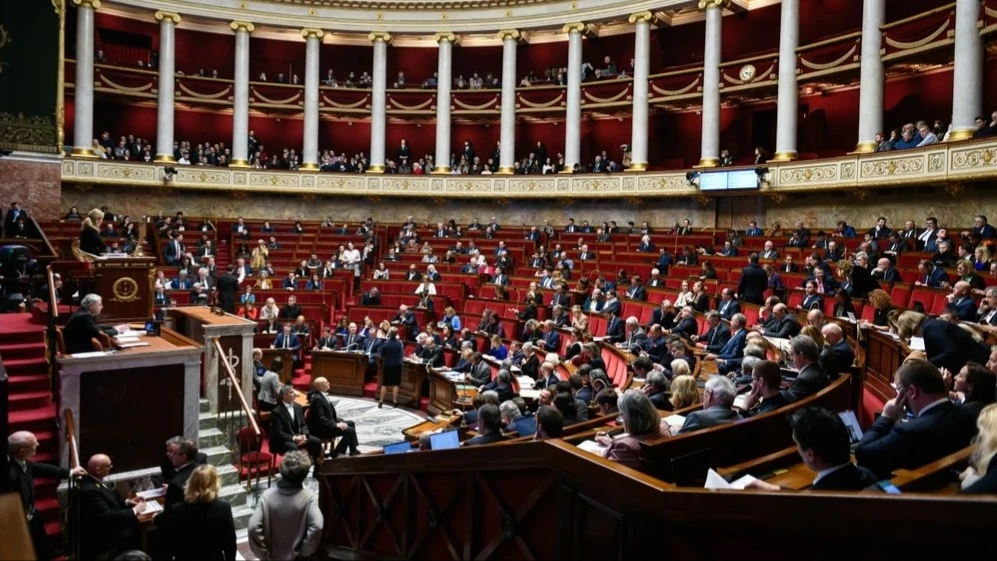French bond yields rose after an unscheduled downgrade by S&P
A sovereign downgrade could make French bonds less attractive to large conservative investors

Yields on long-term French bonds rose after S&P Global Ratings downgraded the country's sovereign credit rating. The unscheduled decision of one of the members of the "Big Three" rating agencies may force large funds to sell debt securities of the second largest economy of the European Union. Investors in French stocks ignored S&P's decision.
Details
The yield of 10-year bonds of France added three basis points at the moment and reached 3.39%, Bloomberg reported. At the same time, similar German government bonds traded at the same level, and the euro stabilized after coming under pressure due to the decision of S&P Global Ratings, the agency noted.
S&P has downgraded France's credit rating from "AA-" to "A+". This is the third stage of four "investment" in the agency's rating system. It means "a strong ability to meet financial obligations, which, however, is somewhat vulnerable to adverse economic conditions and changes in circumstances".
The downgrade of the S&P 500 rating was the second for French government bonds in about a month: in September, Fitch worsened its assessment. This circumstance may force some funds with ultra-strict investment criteria to sell French bonds, Bloomberg reports. In addition, the sovereign rating downgrade may reduce the attractiveness of the country's debt securities for the most cautious institutional investors, such as central banks and pension funds. According to Bloomberg, BlackRock and other large investment funds also aim to hold securities with an average rating of at least "AA" in their portfolios.
While French bonds remain investment grade securities (a bond's transition from investment grade to speculative grade occurs when a bond is downgraded from BBB to BB), the risk of forced sales when bond funds rebalance their portfolios is superimposed on the general deterioration in investment sentiment that typically follows a credit rating downgrade, Bloomberg added.
Investors in French stocks ignored the downgrade of the S&P 500. The stock index on the Paris Stock Exchange CAC 40 at trading on October 20 rose at the moment by 0.8%, reaching the maximum mark since the beginning of March.
What S&P says
S&P explained its decision to unscheduled downgrade France's credit rating by one notch by increased uncertainty over the annual budget and political instability in the country. The agency said it had disrupted its schedule for publishing assessments because of "the recent series of no-confidence votes in the French parliament, impeding progress in consolidating France's public finances."
"In our view, uncertainty over public finances remains elevated ahead of the 2027 presidential election. One example of this is the new government's decision to suspend France's landmark pension reform approved in 2023," S&P said in a statement.
What's next
Now the market's attention will shift to the parliamentary debate on the French budget for 2026, which will begin this week. According to Les Echos calculations, the parliament should adopt the budget no later than December 23. Then the draft budget will be sent to the French Constitutional Council for verification - in order to enter into force by December 31.
Prime Minister Sebastien Lecornu, who was appointed to the post in October and has already survived two votes of no confidence, has rejected a legislative loophole that allows the government to pass laws bypassing parliament. Therefore, every proposed budget amendment has a chance of being passed, and the authors of the amendments in parliament can defend them with particular tenacity, risking a protracted debate, Les Echos notes.
Thus, the chairman of the Finance Commission of the lower house of the French parliament, a deputy from the extreme left-wing party "Unconquered France" Eric Cockrel set a goal for his faction to introduce 1,200 amendments at the stage of consideration of the draft budget in the commission. He expects that twice as many amendments will be proposed at the plenary session.
This article was AI-translated and verified by a human editor
